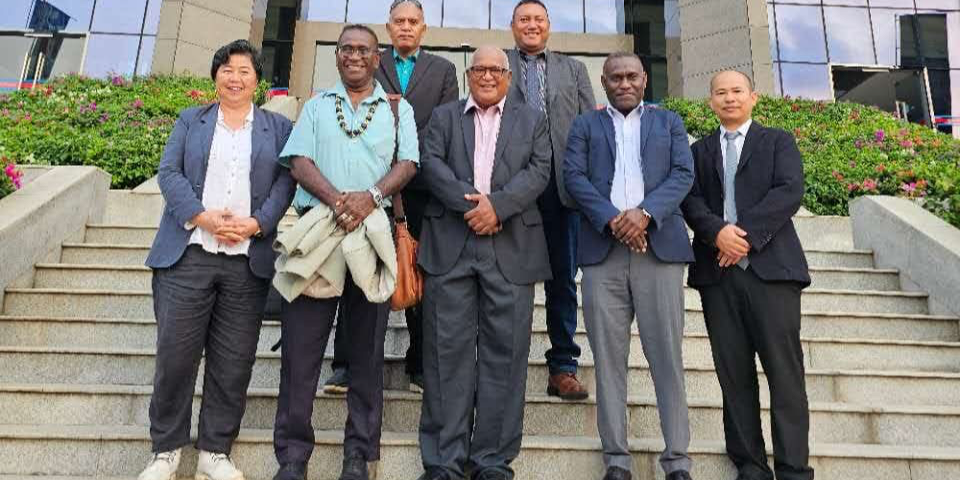A high-level delegation from the Solomon Islands, led by His Excellency Ambassador Barret Salato, has embarked on a significant visit to the Chinese Academy of Tropical Agricultural Sciences (CATAS) in Hainan, China.
This visit reaffirms the two nations’ commitment to enhancing collaboration in tropical agriculture, as part of the South-South partnership framework.
The delegation included prominent figures such as Dr. Morgan Wairiu, Chair of the Solomon Islands National University (SINU) Council, along with Professor Transform Aqorau, Vice Chancellor of SINU, a statement issued by Solomon Islands National University (SINU) said.
Other notable members included Hon. Lawrence Hayward, Premier of Isabel Province, and representatives from the Ministry of Agriculture and Livestock (MAL) and investment cooperation sectors.
The visit was pivotal in operationalizing the Letter of Intent (LOI) signed by MAL and CATAS in December 2024, which aims to advance science and technology in tropical agriculture.
The discussions also revolved around a forthcoming Memorandum of Understanding (MoU) between SINU and CATAS, set to be formalized later this year, which will establish a China-Pacific Tropical Agriculture Research and Development Platform at SINU.
Ambassador Salato emphasized the importance of moving beyond ceremonial agreements to actionable strategies, urging collaborative efforts between CATAS and SINU to support local farmers and align initiatives with national priorities.
He noted that effective implementation of these agreements could significantly enhance economic resilience and climate adaptation in the Solomon Islands, setting a benchmark for South-South cooperation in the Pacific.
Professor Aqorau highlighted the mutual respect underlying the partnership, stating, “Our collaboration with CATAS is rooted in a vision to address poverty, hunger, and climate change through innovation,” and pointed out that integrating traditional knowledge with modern science will help build resilient food systems for the region.
The delegation identified key priorities under the MAL-CATAS LOI and the upcoming SINU-CATAS MoU, focusing on climate-resilient crops, pest management, and capacity building. Initiatives will include breeding drought-tolerant varieties of coconut and cocoa, combating fruit fly infestations, and improving post-harvest technologies.
Long-term sustainability hinges on academic exchanges, farmer training programs, and youth engagement, with Professor Aqorau emphasizing SINU’s commitment to transforming local agricultural practices through collaborative curricula and demonstration farms.
Plans are also being developed to launch pilot demonstration farms in 2026, focusing on high-value crops like cassava and coconut.
A regional climate-smart agriculture workshop, co-hosted by the Solomon Islands and China, is anticipated to further strengthen ties within Pacific Island nations.
The upcoming SINU-CATAS MoU, expected to finalize by late 2025, will solidify a transformative partnership that includes joint research, academic exchanges, and the establishment of a China-Pacific Tropical Agriculture Research and Development Platform.
The Chinese Academy of Tropical Agricultural Sciences (CATAS), established in 1954, is China’s leading institution for tropical agricultural research. With its extensive resources and global collaborations, CATAS is positioned to play a critical role in advancing sustainable agriculture and fostering development in the Pacific region.
By John Chrisma
Solomon Star, Honiara









